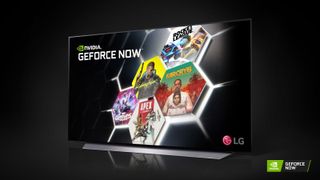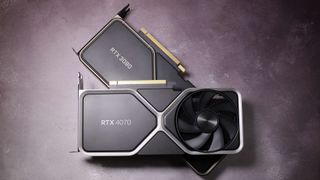Nvidia's hiking its GeForce Now membership fees by up to 40%
Canadian gamers are the ones who will suffer the most.

With the world having to get a second mortgage on a house just to buy a bag of potatoes these days, increases in the price for a relatively niche service won't be a surprise. But if you're a fan of Nvidia's GeForce Now and want to keep using it, you'll be paying anywhere between 10% and 40% more, depending on where you live.
The new membership fees for the game streaming service won't take effect until the 1st November, but Nvidia hasn't exactly gone all out with the announcement, with just a simple update of the GeForce Now FAQ site. Though, to be fair, it may have already let its existing subscribers in these areas know. To be honest, I only noticed the changes thanks to the sharp eyes over at Videocardz and scouting around the interwebs suggests I wasn't the only one to miss it.
So why are prices going up and how bad is it going to be? Nvidia has said it's "to account for increased operational costs in those areas" and is referring to Canada, United Kingdom, Sweden, Norway, Denmark, Czech Republic, Poland, and countries whose national currency is the Euro.
Users in Poland will see the smallest increase, with most of the one and six month Priority and Ultimate package fees rising by 10%, though the six month Ultimate will just go up by 8%. I say 'just' but that's still a sizeable hike. It's nothing compared to Sweden, Norway, and Canada, however.
The first two will see membership fees 30% higher, while anyone using GeForce Now in Canada will be hit with increases starting at 30% and going as high as 40%, depending on the package you go with.
Yes, you read that right. At the moment, the cost of a six month Priority membership in Canada is 49.99 CAD but in a few weeks, it'll be 69.99 CAD. And what are you getting for that? Up to 1080p resolution and 60 fps, and a six hour session length. Don't forget that GeForce Now doesn't offer any games, as such. It connects to whatever digital library you already have (e.g. Steam) and runs those games for you.


Best CPU for gaming: The top chips from Intel and AMD.
Best gaming motherboard: The right boards.
Best graphics card: Your perfect pixel-pusher awaits.
Best SSD for gaming: Get into the game ahead of the rest.
I suppose paying 140 dollars every year to have access to a semi-decent gaming 'PC' isn't too bad, but I'm just not a fan of game streaming services at all. I've only ever tried the free version of GeForce Now so I shouldn't judge what the paid version is like from that experience, but it didn't make me feel like it was worth forking out the money.
The biggest gaming news, reviews and hardware deals
Keep up to date with the most important stories and the best deals, as picked by the PC Gamer team.
But if you do pay for the most expensive package, then you might come away with the same impressions as our Dave James did, when he put the Ultimate service through its paces. In short, you'll be gaming at max graphics, with lots of performance on tap, all without handing over a huge chunk of money for a monstrous graphics card. Yes, there are caveats to it, but this is true of all streaming services.
For some people, this might be your only way of enjoying a spot of high-end PC gaming at the moment, though if you're living in one of the countries listed above, I'm afraid that enjoyment is going to get a little-to-a-lot more expensive.

Nick, gaming, and computers all first met in 1981, with the love affair starting on a Sinclair ZX81 in kit form and a book on ZX Basic. He ended up becoming a physics and IT teacher, but by the late 1990s decided it was time to cut his teeth writing for a long defunct UK tech site. He went on to do the same at Madonion, helping to write the help files for 3DMark and PCMark. After a short stint working at Beyond3D.com, Nick joined Futuremark (MadOnion rebranded) full-time, as editor-in-chief for its gaming and hardware section, YouGamers. After the site shutdown, he became an engineering and computing lecturer for many years, but missed the writing bug. Cue four years at TechSpot.com and over 100 long articles on anything and everything. He freely admits to being far too obsessed with GPUs and open world grindy RPGs, but who isn't these days?
Most Popular





